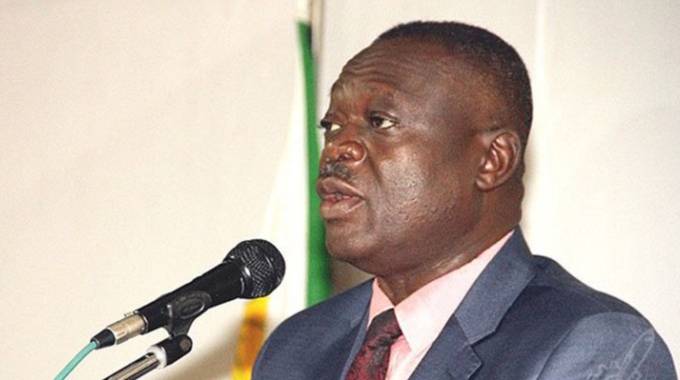EDITORIAL COMMENT: Farmers must heed Government’s advice to mitigate effects of expected drought

We bid good bye to 2018 at midnight and begin a new year with much hope that 2019 will be better in every respect.
This year was momentous for our country politically as it marked the birth of the Second Republic after the July 30 election.
The poll was one of the most closely contested in our history and most peaceful.
President Mnangagwa and his party Zanu-PF won. Economically, the year started promisingly but ends today amid difficulty.
As the year ends the prospects for the country’s agriculture sector are not looking too promising.
By December every year, rains would have fallen effectively in most parts of the country with crops around knee to waist height.
However, in many areas, farmers haven’t even started planting while in others; they are just planting now – in December.
This has been the case because the wet season delayed, especially in the southern half of the country.
The state of affairs is consistent with the forecast produced by the 22nd Southern African Regional Climate Outlook Forum held in Lusaka, Zambia from August 22-24.
It showed that most of the 16 Sadc countries are likely to receive normal to below-normal rainfall for the period October 2018 to March 2019.
Aware of the prediction, our Government has been on the lookout, urging farmers to work their land as early as possible and providing tips on how growers can move ahead while minimising the impact of the projected dryness.
The latest statement from Government came on Friday last week. Lands, Agriculture, Water and Climate Minister Perrance Shiri said the weather has been not too encouraging for the southern zone while the northern section has been better.
This, he said, had adversely affected land preparations, planting and job opportunities for casual labourers.
“The onset of the 2018-19 rainfall season was delayed with first effective rains being received in late November. So far, the rainfall pattern has been erratic in both space and time, especially in the southern parts of the country,” said Minister Shiri.
“The highest accumulated rainfall since the start of the season was recorded in parts of Harare, Mashonaland Central, Mashonaland East, parts of Mashonaland West and Manicaland provinces. The southern provinces of Masvingo, Midlands, Matabeleland North and Matabeleland South have been the most affected by the poor rainfall distribution. The rainfall received to date is below the long-term mean with exceptions of a stretch in the north-eastern part of the country and around Beitbridge in Matabeleland South. So far, the 2018-2019 cropping season has been mediocre in terms of rainfall performance across most of the country.”
Looking ahead, Minister Shiri said there would be a 35 percent chance of below normal rains, a 40 percent chance of normal rains and 25 percent chance of above normal during the January to March 2019 period.
The fact that the rainfall recorded from mid-October to date has been below the long-term average means that the first half of the wet season has largely been lost. Nevertheless, we were warned of this negative prognosis well ahead of time.
As the minister said, our farmers should find ways to go round the forecast we have.
They can do so by planting short season varieties that have a chance of reaching maturity stage even though the season is advanced as it has.
They should try more drought tolerant crops as well.
Livestock producers have to manage their pastures more responsibly so that their grazing can be enough for few more months.
They may also need to grow forage if they have enough space to do that.
The Government has indeed been doing a good job over the past three months by informing farmers of the expected poor rains and steps they should take to be able to harvest whatever they can and to make sure that their livestock remains healthy.
This kind of openness is very crucial. We hope that our farmers will take this advice.
It is noteworthy that authorities are not throwing in the towel at this stage despite the likelihood of a poor rainfall season.
We understand that the Government is continuing with its distribution of inputs to farmers nationwide.
Anything is possible with the weather. It is very possible that rains can actually fall in decent amounts from now on, enabling our farmers to get reasonable harvests.
While we continue to watch the skies, the nation should be pleased that we will not run out of food even if a drought hits.
This is unlike previous years when the country was so vulnerable to food shortage.
Then, one bad season was enough to trigger widespread hunger among the people.
By December 3, the country had 1 179 756 tonnes of maize which is twice as much as the mandatory strategic grain reserve of 500 000 tonnes.
The stock is enough for national consumption for a period of nine months. In addition, there were 135 935 tonnes of small grains.
Overall therefore, the country is comfortable with regard to food supply whatever happens this farming season.










Comments